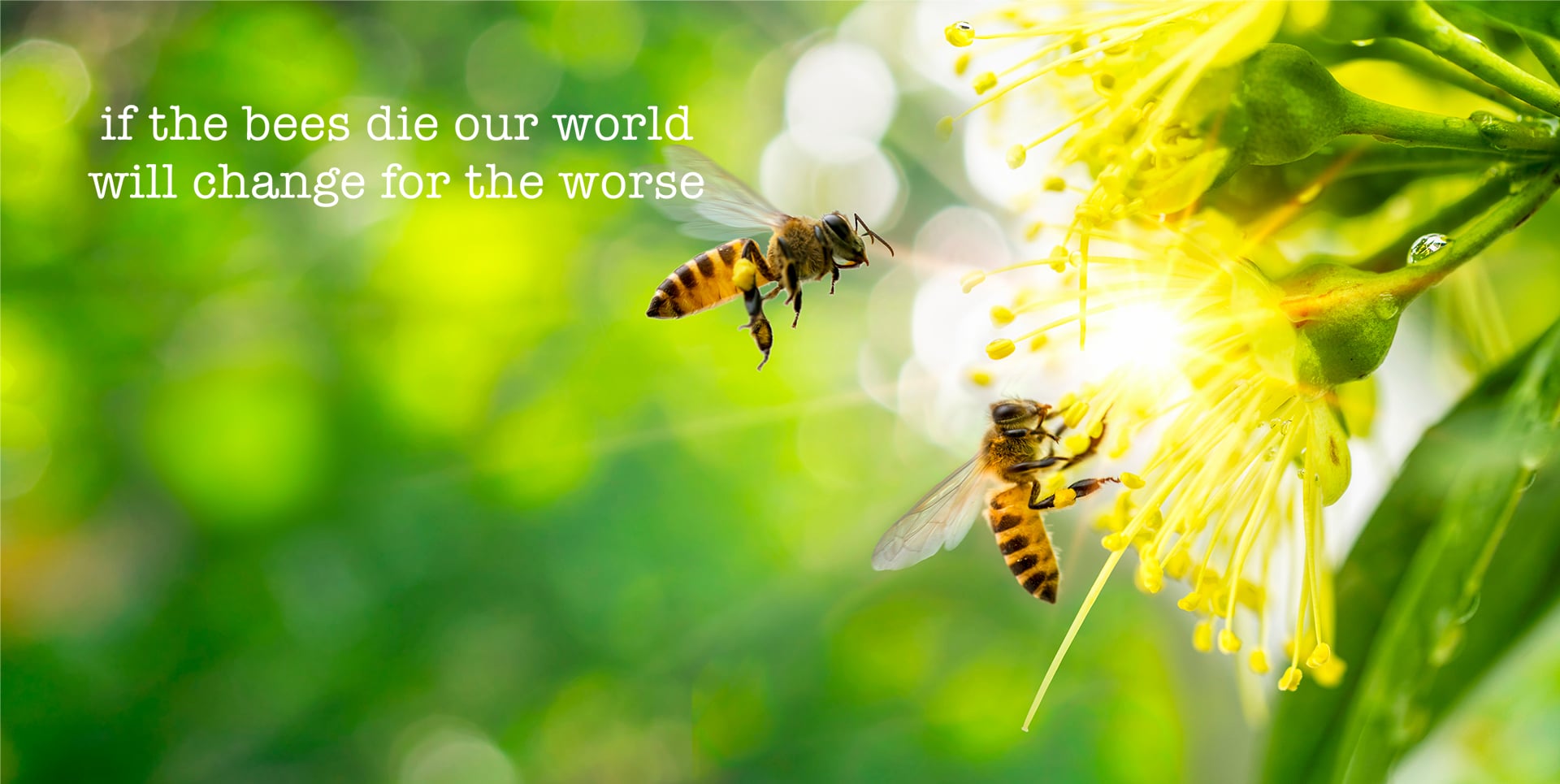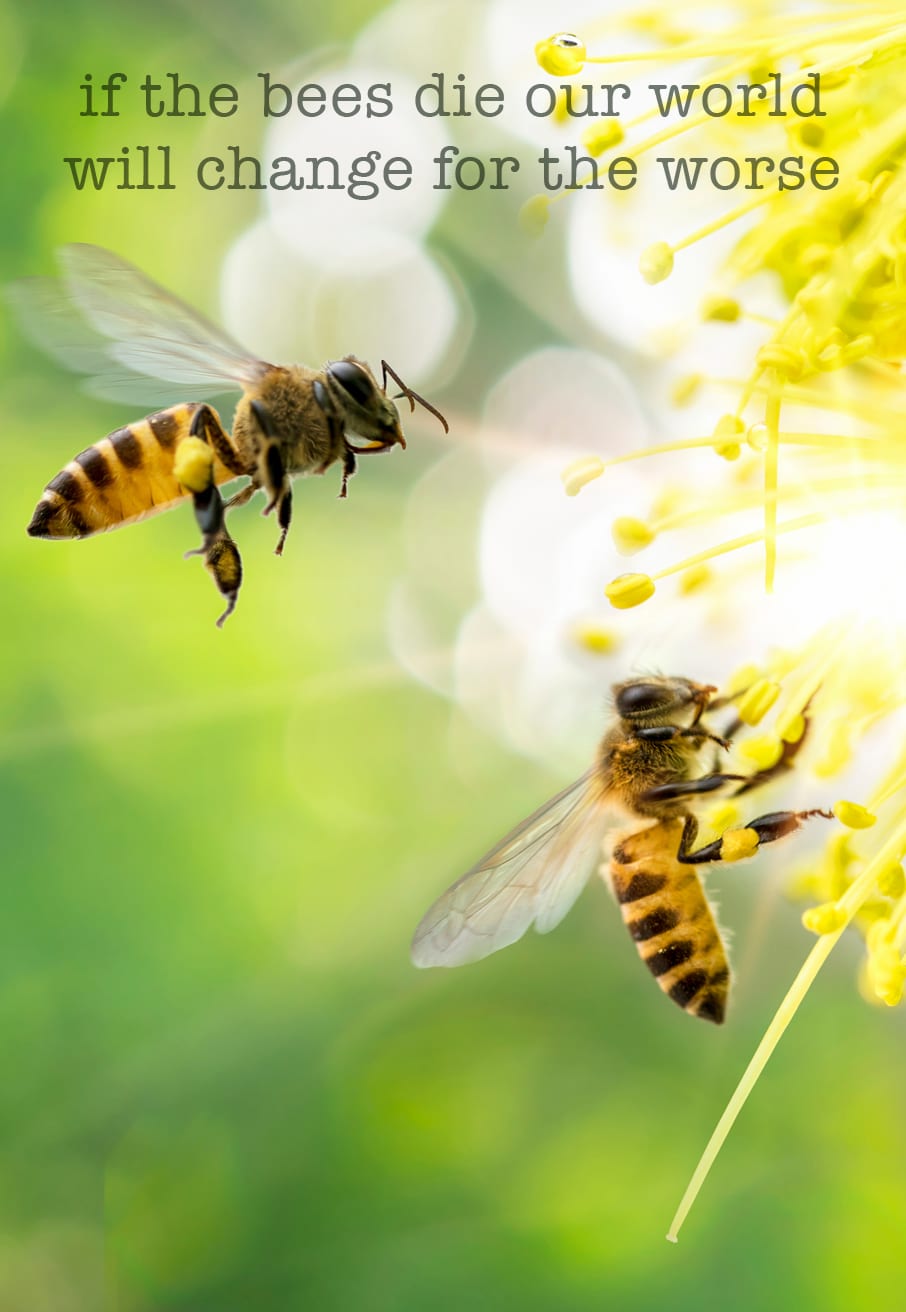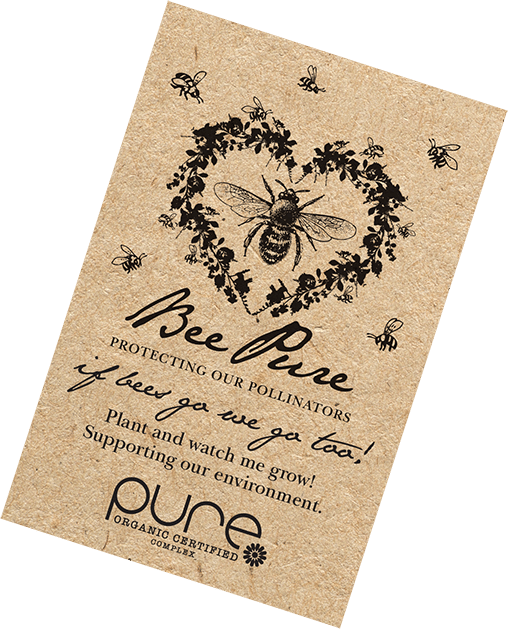

if bees go, we go too!
There are more than 20,000 distinct bee species worldwide and unfortunately, most bees are in trouble.
Colonies around the world are collapsing and many species are edging towards extinction.
Their plight has been described as the death of a thousand cuts, and the causes range from widespread pesticide use to disease to climate change.
In short, bees matter because they’re pollinators. Pollinators are small but mighty parts of the natural mechanism that sustains us and our world.
Without them, our forests, parks, meadows and bushlands, and the abundant, vibrant life they support, cannot survive, and our crops require laborious, costly pollination by hand.
In the wild, many plants rely on pollinators to reproduce and continue growing. Additionally, various animals depend on these plants for their survival.
That’s why bees are a “keystone species” — they pollinate the food sources of so many other organisms.
Bees are prolific in their work as a single colony can pollinate 300 million flowers each day.
Moreover, bees themselves and the honey they produce are good food sources for many animals.
Bees similarly pollinate the majority of human food, pollinating a “staggering” 70% of crops that feed people, including our fruits, nuts and vegetables.
Habitat loss, acute and chronic pesticide poisoning, diseases and parasites, increasing intensification of conventional farming,
and even the impacts of climate change are all taking their toll on bee health. Many of our bees are sick, stressed, and undernourished.
Bees are facing a “perfect storm” that threatens their future survival. Habitat loss, particularly of flowering meadows and fields, is devastating bee populations.
As humans industrialise and urbanise, there are fewer places for bees to nest or forage. Less greenery and diversity of plants in and around suburbs and cities
mean bee habitats have become fragmented. What’s left are “pollinator deserts” that have replaced once abundant wildflower meadows.
Since 2016, Bee Pure by Hairjamm have been working to save the native bees of Australia by planting the flowers loved by bees.
Each sachet contains blue and white mix tones of Swan River Daisy (Brachyscome Iberidifolia) seeds to increase the natural habitat and food source for our native bees.
To date we have distributed over 2.2 million bee friendly seeds through our initiative.
Helping Australian bees is essential to our continued survival, health and wellbeing.
Native bees are invaluable because of the ecosystem service they provide to the environment,
By pollinating our farms, forests and gardens.
Let’s Bee proactive:
- Select plants that flower right through the year
- Give native bees somewhere to live
- Plant a bee friendly garden.
- Avoid using pesticides.
- Provide access to water.
Together We Can Make a Change and Bee Pure!
